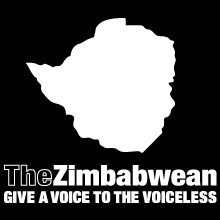Women – the symbol of humanity
Thursday, March 10th, 2011 by Dydimus ZengeneneA century has lapsed since the first celebration of the remarkable international day when scores of women took to the streets demanding their economic and social right in the abusively male dominated world. The world is reflecting on the past and pondering on the fate of women’s future.
Speaking at a women’s suffrage convention in 1868, citing sternness, selfishness, love of war among other qualities, which she said have seen a record of blood and cruelty in the male led world, Elizabeth Candy concluded that “the male element is a destructive force”. Women are full of love for peace, harmony and order. It is only sad that this heart has not yet been placed fully at the centre stage of development.
Now I need to challenge men to start thinking of a single normal day. Have we ever stopped to think how many women die daily while giving birth, how much a woman takes the family on her shoulders in the midst of difficulties, how many innocent ladies we abuse on the prostitution market today, how all children in the world seek the love and protection of a mother. And then stop to think how many women have been raped today, how many women are crying because of violence now. Yet they never stop to love and smile. The very same people at the sacrificial altar for the continuity of the human race today still cry for recognition in society. Look at a newly born girl child, a poor young lady in the remotest part of a war tone country today and know for sure that she is a symbol of this endurance, this suffering in this world into which we all come in the same means for the same life.
Turning to this day, consider how much we celebrate the turn of the New Year, how much we honour one fallen hero in your country versus how we honour mothers who die giving birth for instance. Do not we get to feel that it is not enough just to celebrate this day doing our daily duties behind our office desks? Do not we also feel that it is not enough to show love respect and honour to women during only one out of 365 days of the year.
All the same, turn to a lady next to you, yes you see that symbol, think of your mother, your own sister your neighbor, perhaps you are lady yourself, yes your are the symbol of humanity, love, care, life above all of this endurance. Your struggle is not a mere demand, its not a political exercise, not a fallacy but goes beyond measurable terms. As weak as you may seem physically, the power of sustaining life is in inherently in your being. For those of you who believe the Bible, consider that, when God wanted to serve the world He neither sought for a powerful King, nor a strongest man of the clan, but a woman in the name of Mary”
I salute you women.










